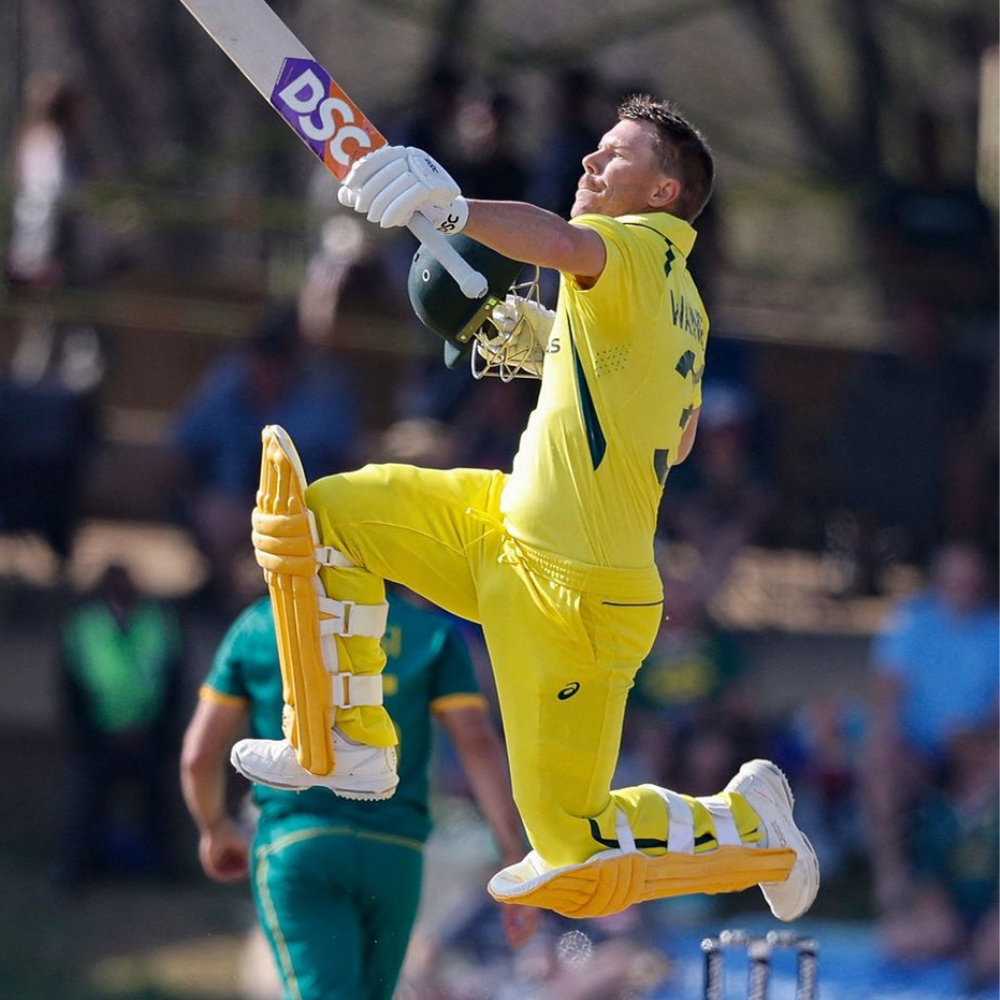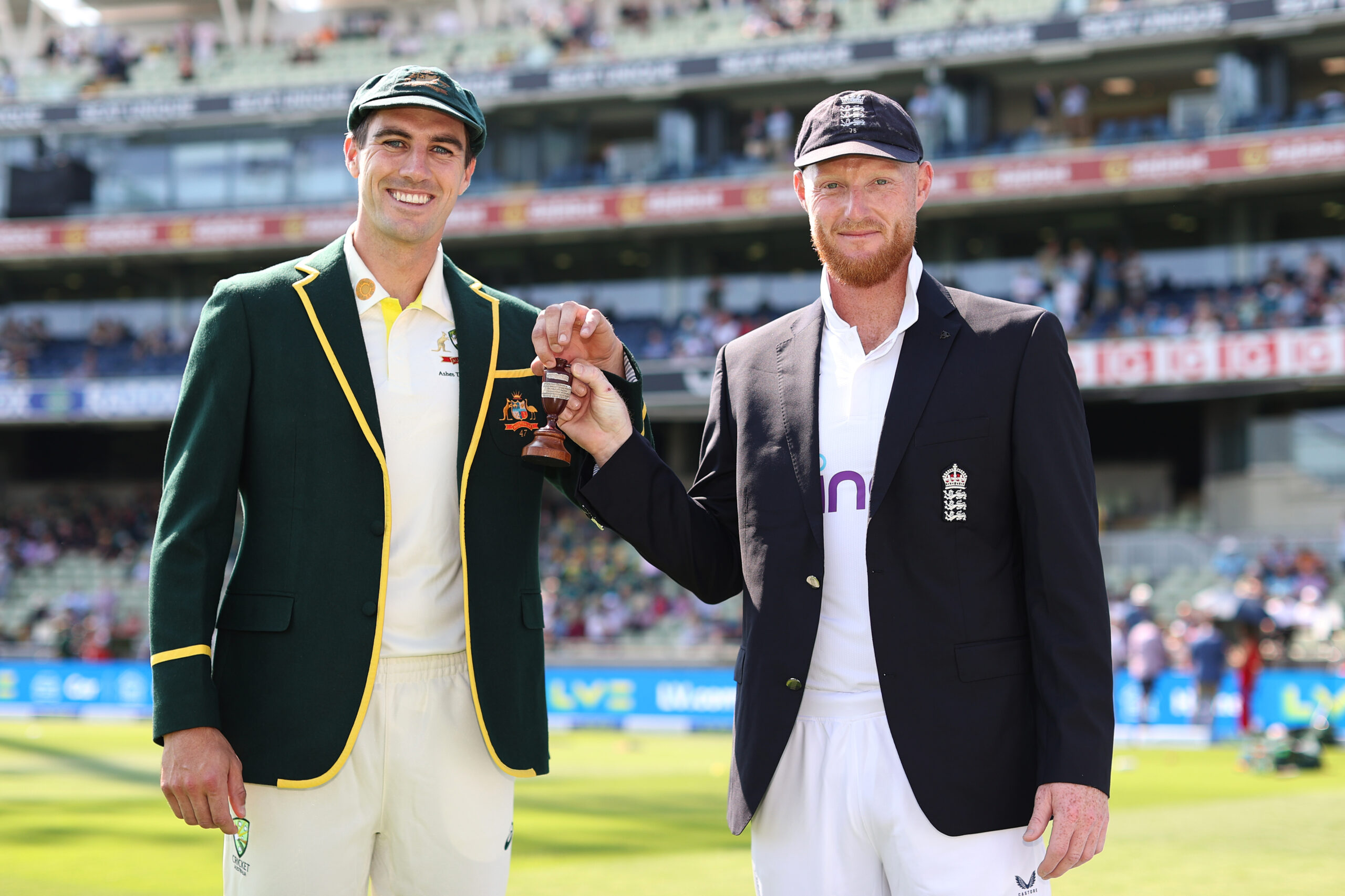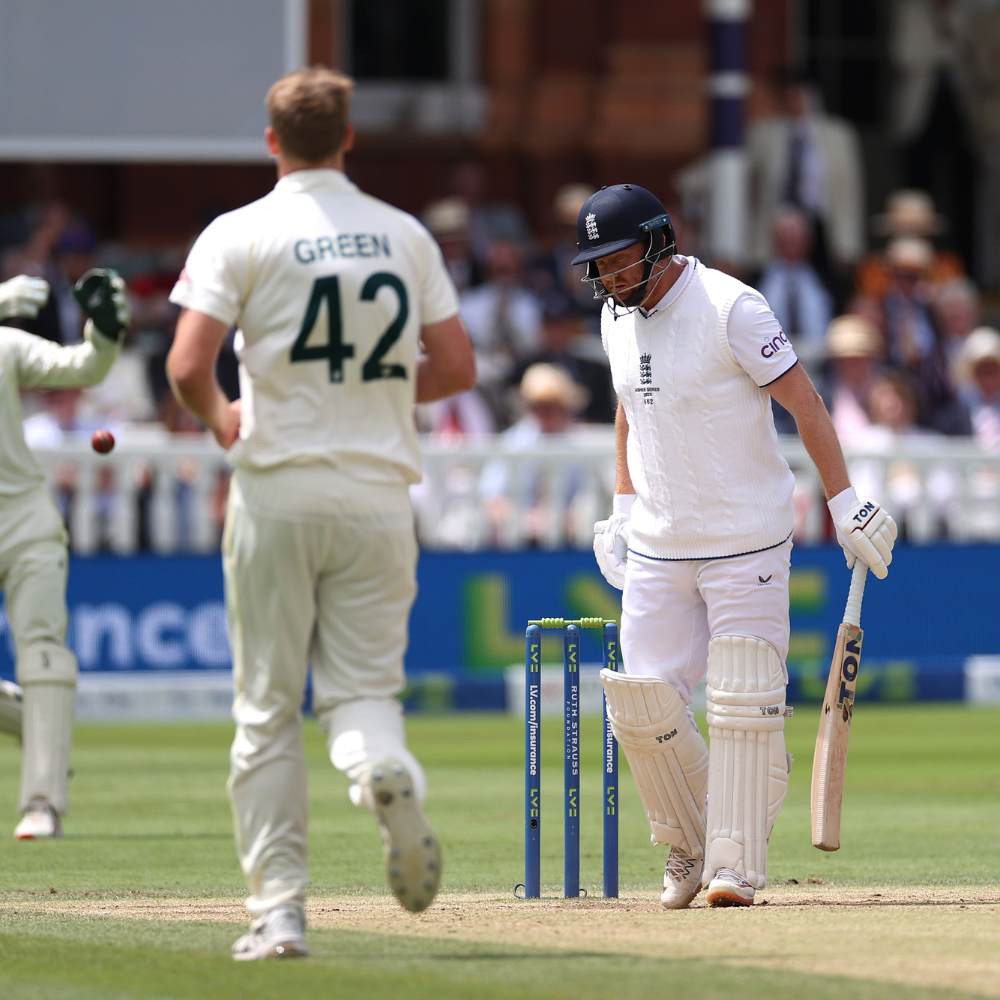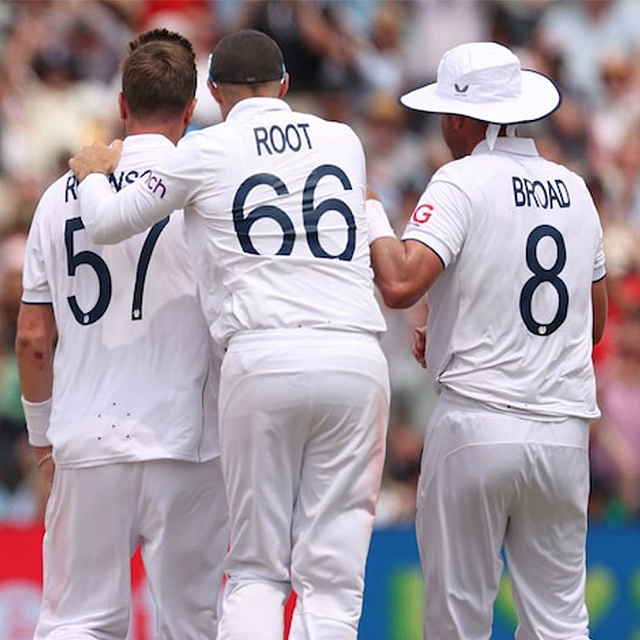What is Bazball, and why did it fail?
The Poms’ much vaunted attacking style came up short against an Australian side playing the game on its merits.

WELL, THAT was thrilling. Led by a stirring captain’s knock from skipper Pat Cummins, the Aussies finally managed to produce a successful fourth innings run chase, knocking off England’s target of 282 runs with two wickets to spare in a nail-biting first test at Edgbaston. As the UK tabloid, Mirror Sport, so expertly and bluntly put it in their front-page headline: “Bazball 0, Ozball 1”.
There are many pundits wagging I-told-you-so fingers at the Poms right now. And while some are calling for England to heed the advice of their critics and ‘buckle down and play Test cricket as it’s supposed to be played’, there’s no chance. Rather, expect McCullum and Stokes to double down on their attacking mindset. McCullum was quick to defend his side’s tactics in post-match interviews.
“Obviously you’d rather have won the game,” McCullum told reporters. “But the way that we played, I think it’s validated our style of play. If we’d have got a little bit of the rub of the green then we might have been on the other side of it. I’m really proud of the boys to be honest. I would be very surprised if there was too many people who disagree with how we go about playing, because everyone was left entertained. You’re not always going to win and we understand that. We want to keep getting up and throwing punches as a team.”
So, it looks like Bazball won’t be going anywhere, which is welcome news for spectators. The clash of styles between the irresistible force of Bazball and the immoveable object of the Aussies’ more traditional approach to the game is adding an extra level of intrigue to this ancient contest.
With one test in the books, let’s take a closer look at what Bazball is, the reasons the Aussies were able to overcome it and what might be in store for the rest of the series.
Related: The Ashes: Australia confronts its Achilles’ heel heading into the final day
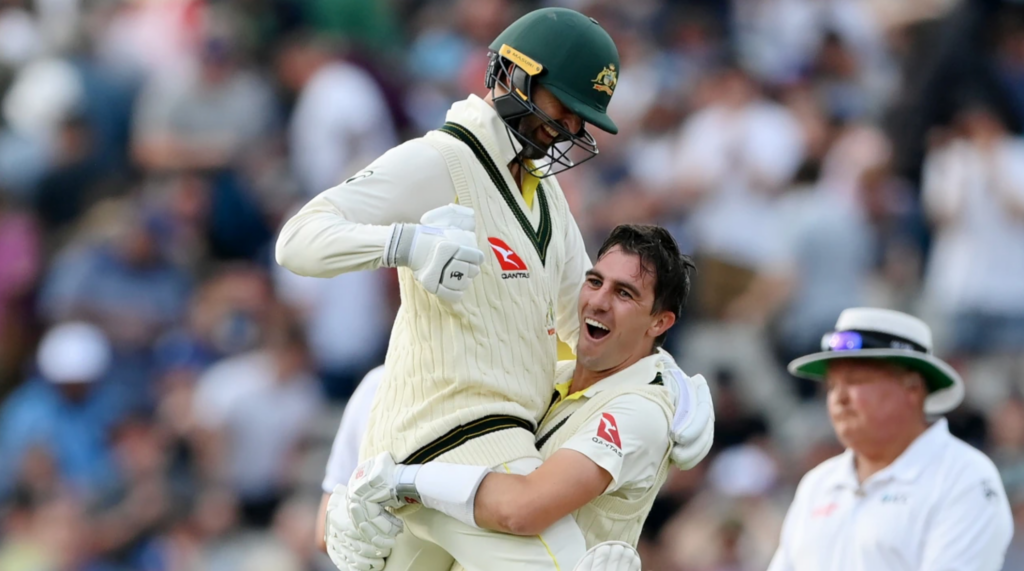
What is Bazball?
Named after its architect McCullum, whose nickname is ‘Baz’, Bazball is an approach to Test cricket geared towards all-out attack, scoring as many runs as you can in as few overs as possible. Decried by traditionalists as the seeping infiltration (and accompanying bad habits) of Twenty20 cricket, many have predicted (and probably willed it) to fail in the face of high quality opposition, particularly one with a strong bowling attack. They got their wish in the first test.
How did the Aussies beat Bazball?
While England scored at 4.61 runs per over at Edgbaston, Australia puttered away at a more traditional Test match velocity: 3.2. At least until the end. With Australia staring at defeat at 8/227 with a further 54 required, they could easily have shut-up shop and played for a draw. But Cummins, perhaps inspired by England’s attacking ethos or more likely drawing from his own sizable repository of blue-skied optimism, began to throw the willow around. His partner in crime, The GOAT (Nathan Lyon’s increasingly unironic nickname among teammates for his status as Australia’s most prolific off-spinner) even got in on the act with some audacious and at times sublime stroke play. But the real reason the Aussies walked away with the game was because Usman Khawaja played two old-fashioned Test innings, scoring 141 and 65 and occupying the crease for a combined 518 balls, the first Aussie ever to bat on all five days of a Test match.
As Jonathan Liew writes in The Guardian: “Perhaps it is too much of a simplification to say England play cricket as they would like it to be, while Australia play the game that actually exists. But it was certainly true here. England played the game of sprites and vibes; Australia played the surface and the ball that was bowled.”
Without Khawaja’s patient, painstakingly crafted runs, Australia would not have been in a position to win.

How did England lose Bazball?
Many have pointed to Stokes’ bold, some would say rash declaration on the first day, when England could probably have added a further 30-40 runs. But rather than any one tactical blunder, the more glaring reason for their defeat lay in failing to execute fundamentals. They dropped six catches, missed a stumping and took a wicket off a no ball. You’re always going to struggle to win Test matches if you give the opposition second chances. If they want to look for further excuses (and they probably do) the Poms could point to the burst blister on spinner Moeen Ali’s index finger that rendered him a passenger in the fourth innings. A good spinner, as Ali usually is on fifth-day tracks, would have been useful.
Can England fight back this Ashes?
Not since 2005 has a team won an Ashes series after losing the first test. But if any team is going to do it, it’s this England side. Bazball, by nature, is hit and miss, underpinned by its ‘No risk, no reward’ philosophy. Given the Poms could easily have won this match had a few things gone their way, there’s every chance they can pull off victory at Lords next week to even the series. The battle of competing cricketing philosophies won’t truly be answered until the series is over.
Forces at play:
As we head into the second test, these are the players with the potential to swing a result in either team’s favour:
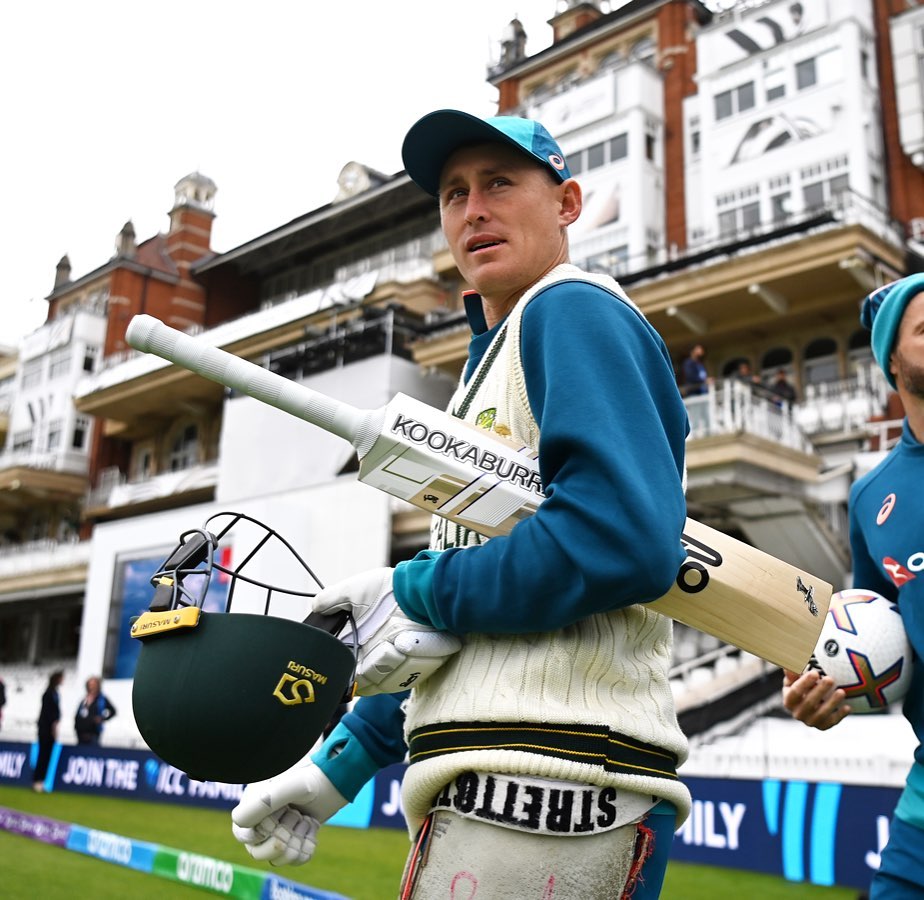
- James Anderson: Largely a non-entity in this match with Stuart Broad doing most of the damage for England’s bowlers. A decisive spell from England’s ever-green champion is likely at some stage.
- Ben Stokes: His decisions and tactics shaped the match but apart from his delightful slower ball to dismiss Khawaja on the final day, he did little else to impact the game with bat or ball. That won’t last.
- Steve Smith: Missed out with the bat in this Test. It would be borderline shocking if he didn’t return to form at the home of cricket.
- Marnus Labuschagne: The no.3 looked so at home in England back in 2019 but is beginning to show signs of the same flat-track bully syndrome that has plagued David Warner.
- Mitchell Starc: The Aussies are planning to rotate their fast bowlers so you would expect Starc to play at Lords. He might receive a bit of tap but should he find his rhythm, his searing pace and shoe-wrecking length could be a Bazball killer.
Prediction:
We’re sticking with our pre-series call of 3-2 Australia’s way. It looks like both captains are philosophically and constitutionally opposed to draws. Of course, the English weather might have other ideas.
Ben Jhoty covers sport and wellness for Esquire Australia.
Related: Why is no one talking about the Australian cricket team?
















